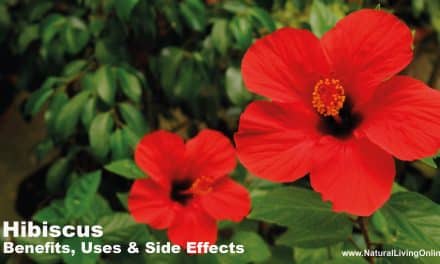Ginkgo biloba, also known as the maidenhair tree, is an ancient, deciduous tree native to China. It dates back over 270 million years and is one of the oldest living species of tree in the world. Ginkgo biloba has been used for centuries in traditional Chinese medicine to treat a variety of ailments, including memory loss, anxiety, and depression. Today, Ginkgo biloba is most commonly used as a dietary supplement to improve cognitive function in adults. It has also been studied for its potential benefits in treating dementia, Alzheimer’s disease, sleeplessness, and other health conditions.
Botanical Profile
Botanical Name: Ginkgo Biloba
Common Names: Maidenhair Tree, Fossil Tree
Plant Family: Ginkgoaceae
Countries of origin: China, Japan
Parts Used as medicine: Leaves and roots
Therapeutic Properties: Antioxidant, anti-inflammatory and neuroprotective.
Contraindications: People with bleeding disorders, or who take anticoagulants should not take ginkgo biloba.
Active ingredients in Ginkgo Biloba
Ginkgo Biloba is an ancient herb that has been used medicinally for thousands of years. It contains over 40 active ingredients including flavonoids and terpenoids, which have powerful antioxidant properties. Extracts of Ginkgo are thought to improve circulation, enhance cognitive function and reduce inflammation.
The most studied active ingredient in Ginkgo Biloba is a flavonoid called ginkgolide, which has anti-inflammatory properties. It is thought to reduce the risk of stroke and heart disease by inhibiting platelet aggregation, reducing blood clotting and dilating blood vessels. Other active ingredients in Ginkgo include terpenoids such as bilobalide, which may have neuroprotective effects and protect against damage caused by free radicals.
Ginkgo has also been studied for its potential to improve cognitive function, reduce anxiety and depression symptoms and protect against age-related memory loss. Studies suggest that Ginkgo may help to increase concentration, focus and alertness as well as improving overall mental clarity.
In addition to its antioxidant and cognitive benefits, Ginkgo Biloba may also be beneficial for treating certain health conditions such as glaucoma, tinnitus, vertigo and peripheral vascular disease. It has also been studied for its potential to reduce the symptoms of premenstrual syndrome (PMS).
Usage
Ginkgo Biloba is available in many forms including capsules, tablets, teas and liquid extracts. It can also be used topically as an ointment or cream for skin conditions such as itching and psoriasis.
It is important to speak with a healthcare professional before taking Ginkgo Biloba as different doses may be needed depending on the condition being treated. To ensure safety and effectiveness, always follow the dosage instructions included with your Ginkgo product.
Ginkgo Biloba is generally considered to be safe when taken in recommended doses for short periods of time. However, it may interact with certain medications, so it is important to talk to your doctor before taking it if you are on any other medications. Additionally, people with bleeding disorders should not take Ginkgo as it may increase the risk of bleeding.
Ginkgo Biloba Health Benefits
Dementia / Cognitive Impairment
Ginkgo biloba has long been heralded as a natural remedy for age-related cognitive decline, including dementia. Research suggests that certain compounds found in the plant may help improve memory, mental clarity and focus in individuals with dementia or cognitive impairment. Ginkgo extracts have even been shown to increase oxygen levels in the brain, possibly helping to reduce the risk of dementia and other neurodegenerative conditions.
Numerous studies have found that Ginkgo biloba can improve cognitive performance in people with mild to moderate dementia or cognitive impairment. In one study, individuals with Alzheimer’s disease who took a daily dose of ginkgo extract for 6 months showed improved memory and mental clarity compared to those who did not take the supplement.
Ginkgo has also been shown to help reduce some of the symptoms associated with dementia, such as depression, agitation and aggression. In a study involving elderly patients with mild cognitive impairment, taking a ginkgo extract for 6 months was found to improve mood and reduce anxiety levels significantly.
In addition to providing cognitive benefits, ginkgo may also help protect the brain from oxidative damage caused by free radicals. Animal studies have found that ginkgo can reduce inflammation in the brain and prevent neuron death, potentially slowing down or even reversing the progression of dementia.
While research suggests that Ginkgo biloba may be beneficial in treating dementia and cognitive impairment, more research is needed to confirm these findings. It is important to consult a healthcare professional before taking any dietary supplement. As with any health supplement, it is always best to use Ginkgo biloba as part of a comprehensive treatment plan that includes other lifestyle changes such as exercise and eating a balanced diet.
Anxiety
Ginkgo biloba is an ancient plant with a long history of medicinal use. It has been used to treat a variety of health conditions, including anxiety. Studies have shown that Ginkgo biloba extract may help reduce anxiety symptoms in people who suffer from generalized anxiety disorder (GAD). The active compounds in this extract work by increasing blood flow to the brain and decreasing inflammation, both of which have been linked to improved mood and anxiety relief. Ginkgo biloba may also help regulate levels of cortisol, a stress hormone that is often elevated in people with anxiety. Additionally, some studies suggest that this extract may help reduce symptoms associated with panic disorder as well. It is important to note that Ginkgo biloba is not a replacement for established treatment methods such as psychotherapy, but it may help to reduce the severity of symptoms and provide additional support. It is always best to consult with a healthcare professional before taking any supplement or natural remedy.
Premenstrual syndrome (PMS)
Ginkgo biloba may help reduce the severity of premenstrual syndrome (PMS) symptoms. Studies have found that supplementing with Ginkgo biloba extract can improve mood and reduce physical discomfort associated with PMS. Additionally, it has been suggested that Ginkgo biloba may also be useful in treating other conditions related to PMS such as headaches, bloating, cramps, and breast tenderness. Furthermore, Ginkgo biloba has antioxidant properties that may help protect the body from oxidative stress associated with hormonal imbalances during the menstrual cycle. As always, it is important to talk to your doctor before taking any supplements or making significant dietary changes.
Vertigo
Ginkgo biloba has been used in traditional Chinese medicine for centuries to improve circulation, decrease inflammation and reduce vertigo symptoms. Studies have shown that ginkgo improves blood flow, increases oxygen to the brain and reduces oxidative stress—all of which may help alleviate vertigo symptoms. In addition, ginkgo can help reduce inflammation and improve cognitive function, which can help reduce the dizziness and disorientation associated with vertigo. Ginkgo may also be beneficial in preventing recurrent bouts of vertigo by addressing underlying causes such as poor circulation or inflammation. Furthermore, ginkgo has been shown to improve balance, coordination and reaction time—all important elements in reducing the risk of falls associated with vertigo. Therefore, ginkgo biloba may be a useful natural remedy for treating vertigo and reducing its symptoms. However, it is important to consult your doctor before taking any supplements or medications and always follow the recommended dosage. Additionally, a healthy lifestyle that includes regular exercise, a balanced diet and adequate sleep is essential in managing vertigo symptoms.
Stroke
Ginkgo biloba has been used for centuries in traditional Chinese medicine to treat a variety of ailments. It has recently gained recognition as a potential treatment for stroke-related conditions and can be taken orally or applied topically. Studies have found that ginkgo biloba improves blood flow to the brain, which can help reduce symptoms associated with stroke. It also helps reduce inflammation, which can help minimize long-term damage to the brain. Additionally, ginkgo biloba has been found to improve cognitive functioning and memory in stroke patients. It may also reduce the risk of further strokes by reducing platelet aggregation and improving lipid profiles. Ginkgo biloba is generally considered safe for consumption, but it is important to speak with your doctor before beginning any supplement regimen.
Glaucoma
Ginkgo biloba has been studied as a potential treatment for glaucoma, and several studies have suggested it may be beneficial. Ginkgo biloba is believed to act by improving blood flow to the optic nerve, which helps reduce the intraocular pressure associated with glaucoma. It also contains antioxidant compounds that protect the eye from oxidative damage, which may slow the progression of glaucoma. Additionally, Ginkgo biloba has been found to reduce inflammation in the eyes, which can also help alleviate symptoms associated with glaucoma.
However, while some studies have suggested that Ginkgo biloba may be beneficial in treating glaucoma, more research is needed to firmly establish its effectiveness. If you are considering taking Ginkgo biloba for glaucoma, talk to your doctor first to make sure it is an appropriate option for you. They can also assess your risk of developing glaucoma and discuss other available treatments. Additionally, because Ginkgo biloba can interact with certain medications, it is important to discuss any existing or new medications with your doctor before taking the supplement.
Glaucoma is a serious eye condition that can lead to vision loss, so it’s important to get proper treatment as soon as possible. While Ginkgo biloba may be beneficial in some cases, it should not replace more proven treatments such as surgery or medications prescribed by your doctor.
Schizophrenia
Ginkgo biloba is a herbal remedy that has been used for centuries in traditional Chinese medicine to treat a variety of health issues, including schizophrenia. It contains terpene lactones, flavonoids and other active compounds that are thought to have anti-inflammatory and antioxidant properties.
Studies have suggested that Ginkgo biloba can improve symptoms of schizophrenia, such as delusions and hallucinations. It may also reduce symptoms such as depression and anxiety. Animal studies have shown that Ginkgo biloba extract can reduce cognitive deficits associated with the disorder. However, more research is needed to understand how ginkgo biloba works and its potential benefits in treating schizophrenia.
Side effects of Ginkgo Biloba
Ginkgo Biloba is generally considered safe for most people; however, side effects may include nausea, diarrhea, stomach pain, headache, dizziness, or allergic skin reactions. Some people have reported mild to moderate gastrointestinal discomfort after taking Ginkgo Biloba. In rare cases it can cause serious liver injury and bleeding inside the brain. If you experience any of these side effects, it is important to discontinue use and consult with your doctor. As with all herbal supplements, it is best to talk to your doctor or healthcare provider before taking Ginkgo Biloba. Additionally, pregnant and breastfeeding mothers should not take Ginkgo Biloba without first consulting a medical professional.
Frequently Asked Questions:
Is it OK to take Ginkgo biloba everyday?
It is generally recommended to take Ginkgo biloba in moderation and not on a daily basis. It is important to talk to your doctor or healthcare provider before taking the supplement, as it can interact with certain medications or other supplements. Additionally, Ginkgo biloba has been known to cause side effects in some people, so make sure to pay close attention to your body when taking the supplement and consult with a medical professional if any side effects occur.
What should ginkgo not be taken with?
Ginkgo biloba may interact with certain medications, including blood thinners, antidepressants, anti-inflammatory drugs, chemotherapy drugs and other herbs or supplements. As such, it is important to discuss any existing or new medications with your doctor before taking the supplement.
Are there any side effects to taking Ginkgo biloba?
Yes, some people may experience side effects when taking Ginkgo biloba including nausea, diarrhea, stomach pain, headache, dizziness and allergic skin reactions. In rare cases, it can cause serious liver injury and bleeding inside the brain. If you experience any of these side effects, it is important to discontinue use and consult with your doctor.
Is it okay to take Ginkgo biloba without eating?
It is recommended to take Ginkgo biloba with food or after a meal as it may decrease the risk of associated gastrointestinal side effects. Additionally, taking the supplement with food will help to increase its absorption rate and effectiveness.
Is it better to take ginkgo biloba at night?
It is generally recommended to take Ginkgo biloba in the morning or afternoon as it has been known to cause insomnia in some people when taken at night.
Is Ginkgo biloba good for sleep?
Ginkgo biloba is not generally recommended for insomnia as the supplement has been known to cause insomnia in some people when taken at night. However, if you are taking the supplement during the day, it may help reduce stress and anxiety which can lead to improved sleep at night.
Does ginkgo affect the blood pressure?
Ginkgo biloba may have a mild effect on the blood pressure, so it is important to discuss any existing or new medications with your doctor before taking the supplement. Additionally, if you are taking any other drugs that could potentially lower your blood pressure, Ginkgo biloba may cause it to become too low.
Does Ginkgo biloba work immediately?
Ginkgo biloba may take several weeks to produce any beneficial effects, so it is important to be patient and consistent when taking the supplement. Additionally, results may vary among individuals depending on lifestyle factors and other medications taken. Consult with your doctor if you have any concerns or questions about taking Ginkgo biloba.
What are long term effects of Ginkgo biloba?
Research shows that it may damage liver if used for long periods. That’s why it important to talk to doctor before using any herbal remedy and 2nd, you should consider doing regular blood work done to detect the early warning signs.
This website does not provide medical advice.
All information provided on this website, and on associated social media networks, including but not limited to texts, images, and numbers are for general information purpose only. It is not intended as medical advice and it does not include all possible precautions, side effects, or interactions that may occur. Neither NaturalLivingOnline.com nor its author/founder take responsibility for how you use this information. Statements contained on NaturalLivingOnline.com have not been evaluated by the FDA. You should conduct thorough research via multiple sources and consult your physician or qualified doctor before using any essential oil or herbal remedy. Information on NaturalLivingOnline.com must not be relied upon for medical, legal, financial or other decisions.













